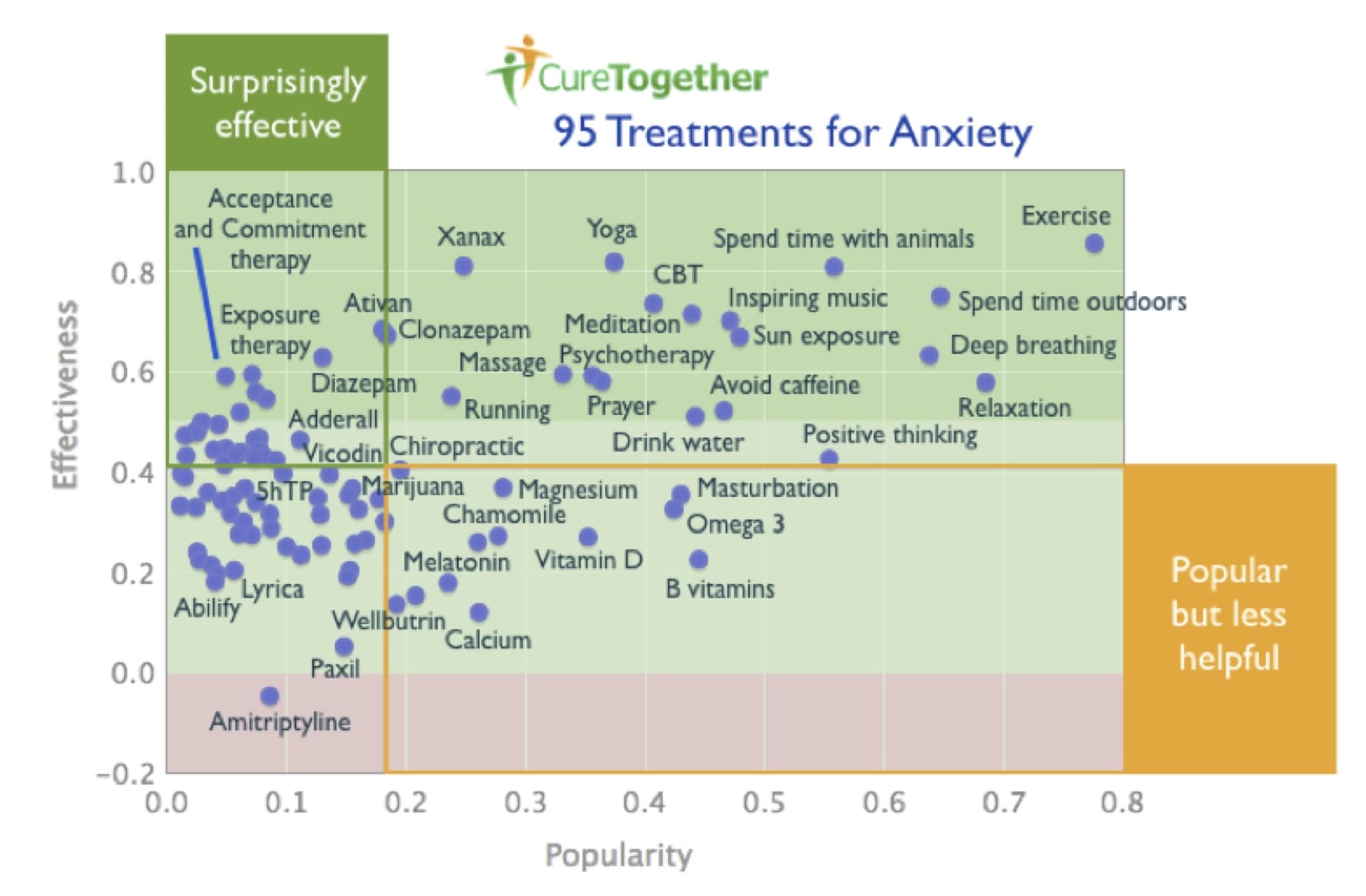 For the live-updated, fully-labelled, interactive version of this graphic, click here.
For the live-updated, fully-labelled, interactive version of this graphic, click here.
By Alexandra Carmichael, Co-Founder of CureTogether
Anxiety is the most common mental illness in the U.S., affecting 18 percent of the U.S. population. According to a new study by CureTogether, the most effective treatments for anxiety reported by patients themselves include exercise, yoga and and being with animals. CureTogether is a free resource owned by 23andMe that allows people to share information about their health and treatments.
People in the study said they found that lifestyle changes like exercising, spending time outdoors, and inspiring music were effective treatments, as were the drugs Xanax and Ativan. Conversely those in the study said some drugs like Amitriptyline, Paxil, and Wellbutrin were among the least effective. These are all treatments suggested and reported by patients, so some redundancy in the terms used is to be expected. In addition, the term “treatment” in this study refers to anything patients describe using to help them feel better whether it is an officially prescribed medical treatment or not.
Most Effective Rated Treatments for People with Anxiety
1. Exercise
2. Yoga
3. Xanax
4. Spend time with animals
5. Spend time outdoors
6. Cognitive Behavior Therapy
7. Meditation
8. Ativan
9. Clonazepam
10. Inspiring music
Anxiety disorders are highly treatable, yet only about one-third of those suffering receive treatment, according to Anxiety and Depression Disorders of America. In addition, anxiety disorders cost the U.S. more than $42 billion a year, so CureTogether asked people suffering from anxiety to rate the effectiveness of different treatments in an effort to help raise awareness. CureTogether’s study compiled responses from 10,980 people with anxiety, who rated the effectiveness of 95 different treatments.
Where did this data come from? This is the result of a four-year CureTogether study on Anxiety, in which people living with the condition shared information about their symptoms and what treatments worked best for them. We’d like to thank those who participated. And just as they shared their experience with treatments, we’re freely and openly sharing the results of the anxiety study.
This is part of a regular series of CureTogether research findings. CureTogether’s research findings are different than those made by 23andMe, which look at genetic associations with illness, traits and drug response. But as we continue our work with the CureTogether community, 23andMe hopes to incorporate more of this kind of self-reported information into our own research. CureTogether present its findings just as they are – patient-reported data – to stimulate discussion and generate new insights for further research.
Please tweet, blog, or pass this along to anyone who can benefit or is interested in anxiety. Thank you!



